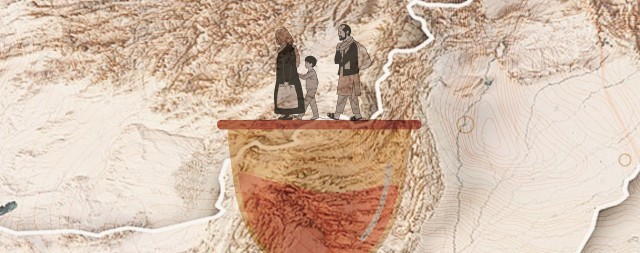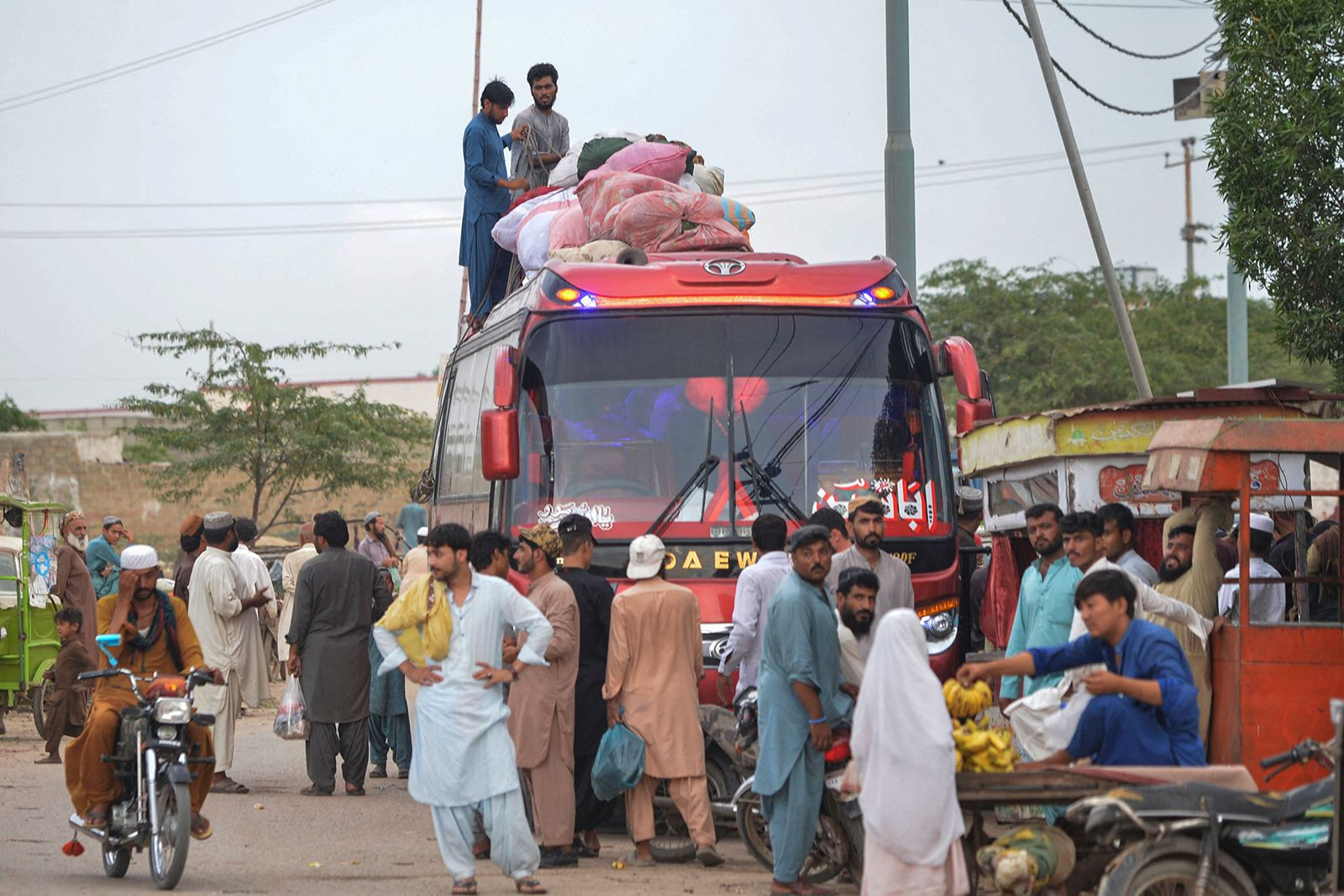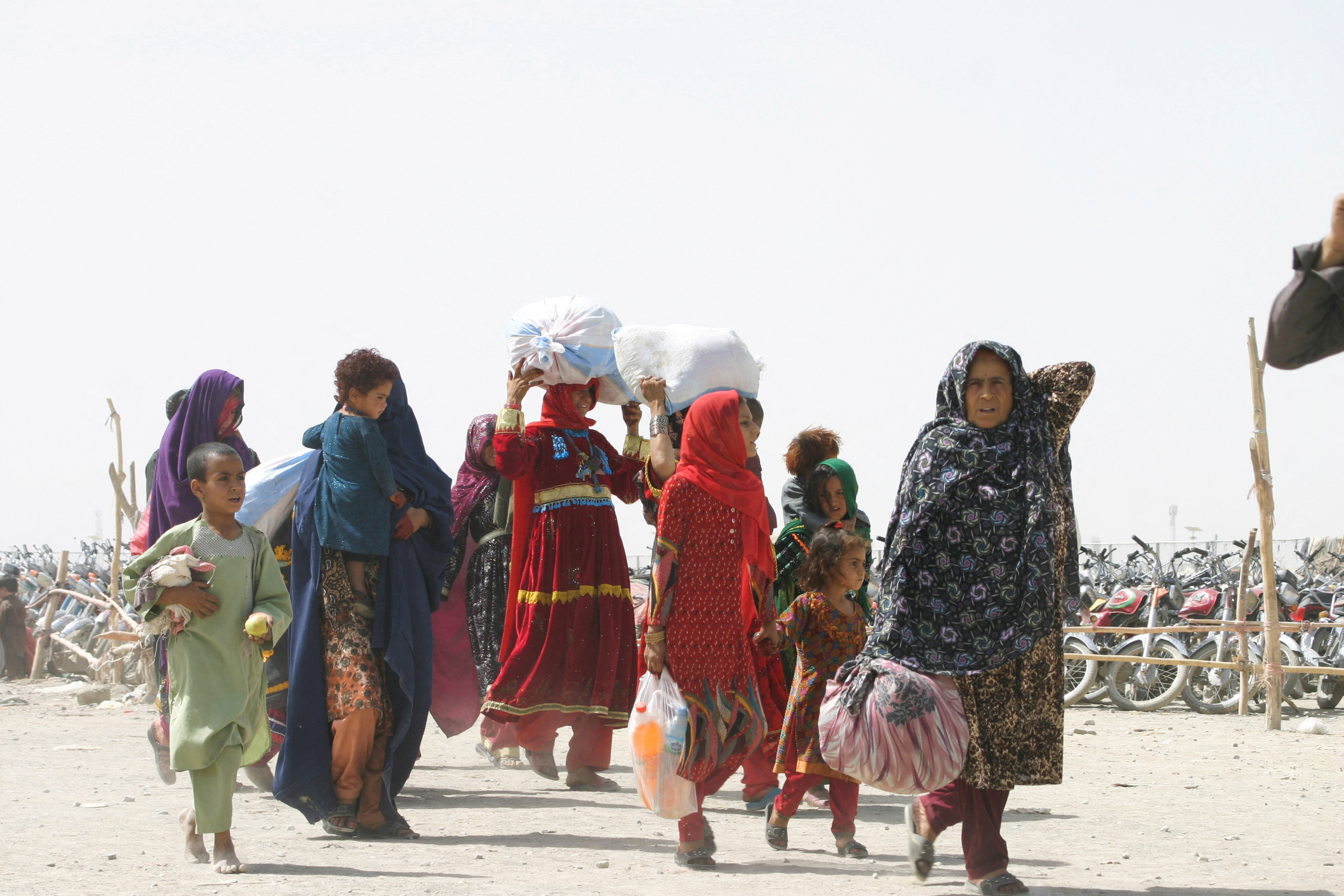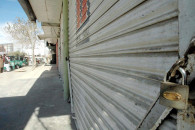Afghan exodus: could Pakistan’s ultimatum prove risky?
‘Illegal’ Afghan nationals welcomed by some quarters at home, international groups criticisize against the move

A daily wager Kala Khan, an Afghan refugee hailing from Faryab province in Afghanistan, was arrested in Karachi by district police twice last month. A registered Afghan, Kala Khan had been living in Balochistan for the last 30 years and had recently found work in Karachi.
In September, the caretaker governor of Sindh told the media that the government had directed law enforcement agencies to arrest Afghans living illegally in Sindh and elsewhere across the country. This week, the caretaker government gave an ultimatum to all undocumented immigrants to leave the country by October 31. This crackdown has drawn the ire of the Taliban regime in Afghanistan. The population of nearly four million Afghan refugees are living on tenterhooks across Pakistan in fear of being detained or deported. More than 6,000 families have repatriated to Afghanistan since August 31, according to the UNHCR factsheet on Pakistan’s refugees. This number is five times higher than the number of returnees last year.
Pakistan’s announcement is a myopic, knee-jerk reaction to the decades-long problem of Afghan refugees on its soil. And it’s speculated to fire back on multiple levels, including the diplomatic front.
First and foremost, how can Pakistan push Afghan refugees onto the Afghan interim government which Pakistan regularly accuses of harbouring terrorist networks, violating the Doha Agreement, and banning female education and free speech? Pakistan is putting the lives of hundreds of thousands of Afghans at risk by forcefully returning them to Afghanistan where the Taliban may prosecute a good number of them through its ongoing official purge of opposition and supporters and employees of the previous government.
Secondly, most of the recent terrorist attacks in Pakistan were owned up by either the umbrella militant group, the TTP, or the ISKP. Afghan refugees may be involved in petty crimes but terming Afghan refugees as a national security threat and demonising them through a planned media campaign only belies Pakistan’s longstanding claim of being a kind host to Afghan refugees.
Meanwhile, Pakistan’s media have been directed by its regulator Pakistan Electronic Media Regulatory Authority (Pemra) to keep highlighting the deadline of the forceful return of Afghan refugees as a national crisis. One really wonders as to how Pakistan could take such an extreme decision at a time when most of its neighbours are not happy with Pakistan’s policies with regard to terrorism and regional integration.
The one-sided imposition of 10% duty on Afghan Transit Trade is another sign that Islamabad, and more importantly Rawalpindi, has decided to arm-twist Afghanistan into meeting its demands regarding the TTP.

Afghan reactions
On the other hand, The Emirate-e-Islami Chief Mullah Habitullah Akhund has directed to establish a makeshift repatriation camp in the Lala Pura area of Nangarhar district.
A committee formed for this purpose, headed by Fazal-e-Bari Fazli, told the media that the government is already on war footing to facilitate the repatriated families. Special measures have been made for those who lack male members in the family or are headed by a female; they will be assisted financially and transported to their respective areas.
"We are in contact with the UNHCR and other welfare institutions for financial purposes to support the repatriation process and families," Fazli said.
The decision has raised multiple voices across the border, as the Afghan interim defence minister Mullah Yaqub Akhund, speaking to a graduation ceremony of the police academy in Kabul, termed the decision as "inhuman, unjustifiable and we condemn it."
Afghan interim deputy foreign Minister Sher Muhammad Abbas Stanikzai reacted to Pakistan's decision to expel Afghan refugees from its soil, calling it "out of line with the manners of neighbour countries and international law," while warning the Pakistani officials to mind their language, and not harm bilateral relations by making allegations against Afghans.
"We have safeguarded Pakistani interests in the past, and if our Mujahideen didn't fight, the Soviet Union would [have] extend[ed] to Gwadar," Stanikzai added.
What pushed Pakistan’s hand
Pakistan expected the Taliban regime would bring peace to the country, forgetting that history shows that despite using Islamabad as a proxy in war, when the TaIiban gain power, they will become a government, and have to take decisions which are popular and acceptable to its masses, renowned journalist and Afghan affairs expert Sami Yousafzai told The Express Tribune over the phone.
"The relationship between the two governments wasn't exemplary, as history shows, but the people-to-people contact was a model," he said.
“Pakistan's demands are loud and clear. It wants to expel or curtail the TTP, stopping the Afghan suicide bombers from entering Pakistan, and to get permission for fencing on the Pak-Afghan border where it's still unfinished which isn't acceptable to the Kabul regime" explained Yousafzai.
While commenting on the deadline, Yousafzai added that the fragile security situation in Khyber Pakhtunkhwa and merged districts has forced the security establishment to cut at the roots of facilitators of Afghan bombers on Pakistani soil. Such tactics put pressure on Kabul: if you aren't handsomely dealing with Islamabad's demands, then this will be the outcome. However, he added, that the deadline is unrealistic, as neither Kabul nor the international community has the capacity or capability to handle millions of starving, displaced families.
"Those who were born and raised here, are earning their bread and butter in Pakistan, they won't be shifted in a jiffy. This needs a phase-wise plan," said the journalist. He argued, "Such pressure tactics wouldn't bother the Emirate-e-Islami, as they are not a responsible government but a Jihadi entity. They exert force on those who live in Afghanistan, including opposition, political leaderships and ex-army officials" he said.
As Afghanistan currently doesn't have a legitimate government, and 50 percent of its women population is limited to homes, how will it handle such an expulsion?

What will be the diplomatic outcome?
Yousafzai said that Pak-Afghan relations have two tiers. There is the relationship between the states which would deteriorate, but simultaneously the people-to-people bond would also suffer. Islamabad, he said, had earned a good name for the tremendous role it played in the evacuation of those who wanted to leave Afghanistan during the fall of Kabul. However, decisions such as the forceful return of Afghan refugees would further drain the trust Pakistan earned by placing 700,000 Afghan refugees during the Taliban takeover of Kabul.
Criticism on the decision
Dr Sehr Baz Khan who is currently a postdoctoral fellow at the Erich Brost Institute of International Journalism, Dortmund, Germany expressed astonishment at Islamabad's decision. He advised that, "It is high time that Pakistan’s Ministry of Foreign Affairs takes the lead and resorts to quality diplomacy that is synchronised with Pakistan’s commitments to the issue of refugees in the region, especially the Afghan refugees."
He questioned, "If Afghan 'illegal' refugees are a threat to regional peace, why should the West accept them for asylum? Or does it mean that Pakistani policymakers believe that perhaps the Taliban’s interim government is safer for refugees than Pakistan?"
Moreover, the crackdown on Afghans will also give another excuse to Pakhtun nationalist parties to further promote their anti-army narrative, added Dr Sehr Khan.
Supporters of the decision
The decision received support from some quarters. Shahid Khan, director of Pak-Afghan Forum's Afghanistan chapter (that works for co-operation and best diplomatic ties) has said that currently Pakistan hosts 1.4 million registered and over two million unregistered Afghan refugees, while around 700,000 freshly arrived Afghans also added to the previous number after the fall of Kabul.
"After the Fall of Kabul, Pakistan generously issued 130,000 visas to those who were foreign nationals, seeking refuge across the globe, or shifting to a third country, but beside that over 500,000 also got into Pakistan via the Chaman border. They had been asked to remain restricted to the Chaman border areas, but they moved into the major cities including Karachi, Rawalpindi and Islamabad," Shahid Khan told The Express Tribune.
Most of the refugees don't have valid travel papers. Those who do, their visas got expired, or they don't have E-tazkira. That allows Pakistan to expel those Afghans. However, it is in Pakistan's power to still adopt a lenient policy towards them, he added.
Meanwhile, Afghans who await the immigration process for Canada, US, UK or other countries, face an uncertain future.
"Pakistan can't stretch its wings beyond its limit, but if Kabul reconsidered its policy, Pakistan can reconsider its policy as a neighbour. But it isn't bound to do so by any law, he said.
UNHCR data shows that some 18,000 Afghan refugees, holding proof of registration (PoR) cards, have returned to Afghanistan under the UNHCR-facilitated voluntary repatriation programme in the last two years. The world needs to mediate the Pak-Afghan tension to mend the wounds of those who have been living in Pakistan for over four decades. The Afghan citizens in Pakistan urged the Kabul regime to review and revisit its policy towards TTP so they could settle and live a better life in Pakistan for years to come.



















COMMENTS
Comments are moderated and generally will be posted if they are on-topic and not abusive.
For more information, please see our Comments FAQ